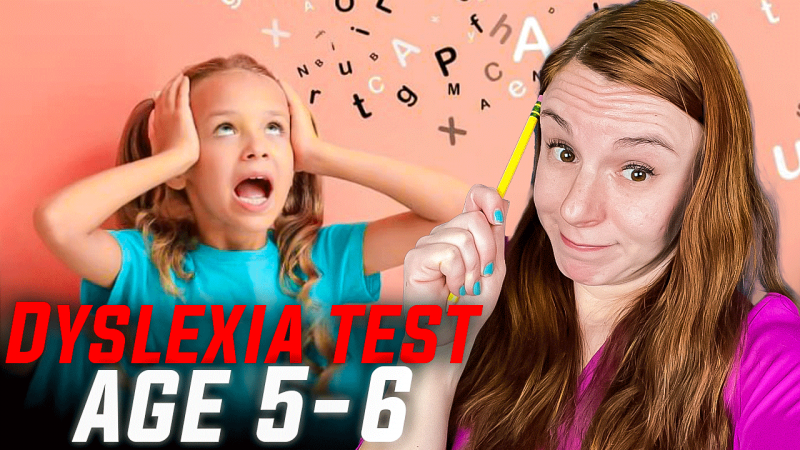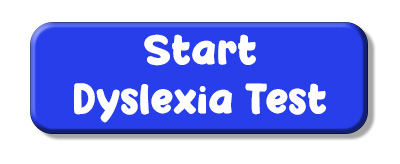
Watch the video below to quickly screen a 5 or 6 year old for dyslexia.
Start the Deep Dive Dyslexia Screener
If your child is struggling in school then you can get them back on track with a free trial of the Learning Success System
https://www.learningsuccesssystem.com/offer/15-day-trial
Transcript
Are you concerned your 5 or 6 year old may have dyslexia? It’s a great idea to find out now because the earlier you catch it, the easier it is to treat. Catching it early prevents other problems that would occur if it was missed. So great job on being an aware parent
It’s very common for things that occur during normal developmental stages to be mistaken for dyslexia. Sometimes parents worry for no reason. There are also dyslexia clues that get missed. This video will help you figure out which is which.
Hi I’m Samantha from Learning Success and we made this video to help parents catch dyslexia early. Formalized dyslexia testing is simply not available for most people and when it is, it’s extremely expensive. We’re working to fix that. We want to make this information available to all parents who need it. Will you help us with that by hitting the like and subscribe button below?
Thanks, we appreciate that. Let's get to the test.
I’m going to ask you a series of yes or no questions. For every yes answer I want you to add a 1 to your score. At the end we’ll add that up and that will give you a better idea if your child has dyslexia. If needed, I’ll point you to a free resource to get an even more detailed report.
Question #1
Does your child seem intelligent but is showing signs of struggling in school?
#2
Did your child seem delayed in their speech development?
#3
Does your child sometimes mix up similar sounding words such as volcano and tornado
#4
Does your child mispronounce some words? Pasgetti instead of spaghetti
#5
Does your child switch out the beginning or ending sounds of some phrases? Such as Beddy Tear instead of Teddy Bear.
#6
Does your child have a difficulty understanding or remembering nursery rhymes or songs? Or just have a general disinterest in them?
#7
Does your child have a smaller vocabulary than other kids their age?
#8
Does your child use general words such as “thing” or “stuff” a lot
#9
Does your child regularly mix up the names of things. Like calling a fork a spoon?
#10
Does your child have trouble remembering the names of colors?
#11
Has your child had a difficulty learning the alphabet
#12
Does your child seem uncoordinated?
#13
Does your child tell stories in a way that is difficult to understand?
#14
Does your child have a difficult time explaining an event in the logical order that it occurred?
#15
Does your child have a difficulty with multiple step directions
#16
Does your child have difficulty learning the relationship between letters and the sounds they make? For example, can they connect the letter B with the sound Buh
#17
Does your child have difficulty writing their own name
#18
Does your child use a lot of baby talk?
#19
Does your child have trouble breaking words into syllables? Such as cowboy into Cow and Boy
And Question #20
Does your child confuse b’s and d’s or p’s and q’s?
Ah wait a minute. That one was actually a trick question. We threw it in because parents often get worried when they see a 5 or 6 year old doing this. At this age it is normal. Just keep an eye on it for now and do not add 1 to your score for this question.
Okay what’s your score?
If your score adds up to three or more, then there is a possibility of dyslexia or something related. It doesn’t mean it’s dyslexia, just that you should dig a little deeper. Here’s how to do that. We’ve created a free deep dive dyslexia screener for you. Fill it out and then it will send you a free report. That report will help you understand what type of dyslexia is likely. It will help you find the specific areas where your child is having trouble and also give you suggestions on how to fix them.
The link is in the description. It’s totally free. And we promise it will help you and your child. So jump down to the description, click the link, and do that screener now.
Key Takeaways:
Timecodes
00:00 Intro
00:55 Dyslexia test instructions
01:13 Seems intelligent but is struggling in school
01:20 Seemed delayed in speech development
01:25 Mixes up similar sounding words
01:32 Mispronounces some words
01:39 Switches beginning or ending sounds between words
01:46 Difficulty with rhyming
01:55 Smaller vocabulary than other kids
02:01 Uses general words like things or stuff
02:07 Mixes up names of things
02:15 Trouble remembering the names of colors
02:20 Difficulty learning alphabet
02:25 Child seems uncoordinated
02:29 Tells stories that are difficult to understand
02:35 Difficulty explaining events
02:42 Difficulty with multiple step instructions
02:46 Difficulty learning sounds of letters
02:57 Difficulty writing their name
03:03 Uses baby talk
03:08 Trouble breaking words into syllables
03:19 Confusing b's and d's or p's and q's
03:40 Scoring
03:50 What to do next
Do You Need help with a Learning Difficulty?
Our simple online analysis will help you get to the core of the problem and find the right solution for you.
Understanding how to help someone with a learning difficulty starts with understanding which micro-skills are affected. When you learn which of the micro-skills is the problem, you will then be on your way to solving it.
You'll also learn how to:
- Build confidence
- Enhance Learning ability
- Eliminate avoidance
- Build grit
You can get this analysis for free by filling out this simple form. This will help you get to the bottom of a learning difficulty and provide you with a solution. If you are ready to put this problem behind you click the button below and fill out the form.











